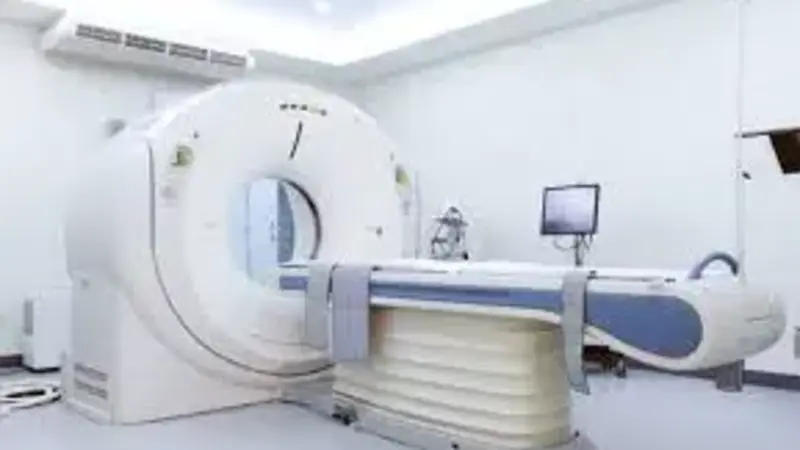When a medical condition arises requiring choosing your imaging center, patients are faced with choosing a facility they can trust to deliver accurate results. With various options like hospital radiology departments, private outpatient centers, and mobile providers, selection requires diligent research.
This guide covers techniques to find the best medical imaging clinic like PRP Diagnostic Imaging aligned with your priorities—whether cost, convenience, cutting-edge technology, or patient experience. We’ll explore questions to ask, factors to weigh, and steps to take for an informed choice. While this guide cannot recommend specific providers, it equips you to compare options apples-to-apples.
Defining Your Imaging Needs
First, understand your specific imaging needs. What diagnostic data does your doctor want the scan to reveal that will guide treatment decisions? Common scans include:
- X-ray: bones, organs, tissues, dental
- CT (computed tomography)—cross-sectional 3D views
- MRI (magnetic resonance imaging): soft tissues, ligaments, organs
- Ultrasound: internal organs, pregnancies, arteries
- Nuclear imaging: functional processes and diseases
Knowing the purpose, required equipment, and importance of timely results helps assess center capabilities.
Compiling a List of Prospects
Cast a wide net for prospects:
- Ask your physician for recommendations based on equipment and specialty.
- Search by choosing your imaging center directories. Resources like ACR and RadiologyInfo.org offer searchable databases.
- Check insurers’ covered facility lists—but don’t limit yourself to in-network yet.
- Search choosing your imaging center online for highly rated centers and read reviews.
- Evaluate hospital and private outpatient facilities.
- Consider specialized centers focused on your health concern.
Compile a list of top contenders for further vetting.
Evaluating Convenience Factors
Compare logistical factors that impact access to care:
- Location: Distance for you is important, but also consider a center’s service area if you may move.
- Hours: availability for appointments before/after work hours and weekends.
- Scheduling: Can appointments be made promptly? Real-time online scheduling is ideal.
- Disability access assesses handicapped parking, equipment like wheelchair lifts, wide doors, and accessible exam rooms.
- Transportation: Is drop-off/valet parking available? Public transit options?
Choosing your imaging center is a center accommodating your schedule and access needs.
Assessing Staff Expertise
The right imaging equipment is only half the equation—you want experienced staff operating it. Ask:
- Are all radiologists board-certified with subspecialties matching your needs? Verify board qualifications.
- Do radiologists have hospital privileges? This indicates expertise.
- What are the credentials of technologists performing scans? Look for certification and years of experience.
- Will I see the same team each visit or rotate? Consistency builds comfort.
Look for specialized radiologists and seasoned technologists.
Evaluating Image Quality
Understand how a center optimizes and verifies image quality:
- Do they use low-radiation protocols when possible? Limiting radiation is ideal when applicable.
- What dose monitoring procedures are in place? Ask about accreditation.
- How often is imaging equipment serviced, updated, and calibrated? Frequency indicates attention to quality.
- Are phantoms used to verify quality? Are accuracy measurements posted publicly?
- Can you view sample images to evaluate clarity? Crisp detail is ideal.
High standards for image precision lead to confident diagnosis.
Confirming Comfort-Focused Care
An imaging exam can be stressful. See how much a center caters to patient needs:
- Are staff patient-focused and friendly in communication style?
- Do they explain procedures, answer questions, and address concerns?
- Are gowns, blankets, and pads offered for comfort and modesty?
- What anxiety reduction measures are available—music, relaxation techniques?
- Is the environment calming—low lighting, art, nature sights, and sounds?
Your preferences for personalized care should be supported.
Understanding Costs and Payment
Financial considerations come into play:
- What insurance plans are accepted? Verify you’re covered.
- Are cost estimates provided upfront? Get clarity on out-of-pocket fees.
- Is payment required the day of, or can you be billed? Check financing options.
- Is there a policy for patients with financial hardships? Ask about payment plans or discounts.
- Are cash prices available? Uninsured may compare cash rates.
Avoid billing surprises—have finances clarified upfront.
Asking the Right Questions
Don’t hesitate to ask thoughtful questions when touring facilities under consideration. Some examples:
- How are results communicated back to me and my doctor?
- How are records kept—digitally or in print? This impacts information sharing.
- What safety certifications do you hold? Ask about CMS and accreditations.
- How do you handle emergencies during exams? Look for protocols and advanced equipment.
- Can I see the types of imaging rooms and equipment used? Tours build understanding.
- What patient satisfaction measures do you track? Higher scores indicate better care.
Probing questions provide insights on quality you can’t glean from websites alone.
Choosing Where You’ll Get Top-Notch Care
Selecting an imaging center is an important health decision requiring diligent research. While cost and location logistics come into play, prioritize expertise, safety, and patient focus. Take time to ask thoughtful questions and evaluate all aspects of care.
Conclusion
Doing your homework means you can proceed confidently with needed imaging, knowing quality images will be captured and your comfort will be supported. Don’t settle for subpar care; you deserve the very best.
